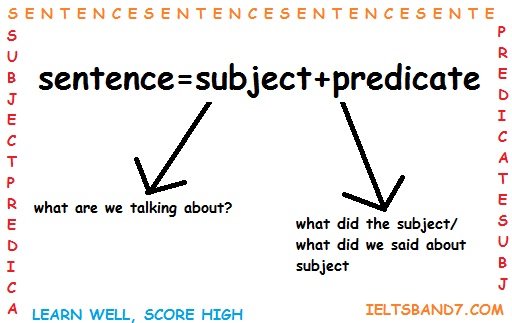Subject And Predicate
While studying grammar the two most heard words are, “subject” and “predicate”. But what is a subject and a predicate?
A sentence consist of two parts-:
- The person or the thing we are talking about.
- What we are speaking about the person or the thing.
For example-:
Bad habits grow unconsciously.
What are we talking about? Bad habits.
What are we saying about bad habits? They grow unconsciously.
So, a sentence usually has a subject to speak about and it usually says or predicate something about the subject.
In terms of definition-:
- SUBJECT
- The part which names the person or the thing we are talking about in the sentence.
- PREDICATE
- What we say about the subject is called the predicate.
NOTE: The best way to identify subject and predicate is to question.
What are we talking about? The answer is subject.
What are we talking about the subject? The answer is predicate.
EXERCISE 101
In each of the questions a part has been highlighted. Find out if it is the subject or the predicate.
- The girl climbed the mountains.
- The girl climbed the mountains.
- Sometimes the predicate comes before the subject.
- I need help with the vocabulary.
- My favorite month is July.
- July is my favorite month.
- Cricket is the most watched sport in our country.
- Anvesha climbed.
- My new pen has stopped working.
- The last person to finish the race was Amarjeet.
- You have a mock test tomorrow.
- Nature is the best physician.
- The earth revolves around the sun.
- Out of all the days, Tuesday is my favorite.
- Steve Jobs is the founder of apple.
- The hour to prepare lessons has arrived.
- The burnt child died on the way to hospital.
- They expect to see the prime minister.
- Your hands are certainly dirty.
- One man meat is another man’s poison.
ANSWERS
- Subject
- Predicate
- Subject
- Subject
- Subject
- Predicate
- Subject
- Predicate
- Predicate
- Predicate
- Subject
- Subject
- Subject
- Subject
- Subject
- Subject
- Predicate
- Subject
- Predicate
- Subject

